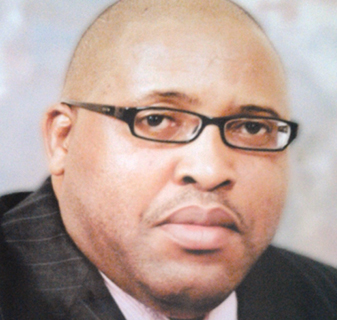
JAMES Madison, one of United State’s founding fathers and its fourth president, correctly noted that “the duty which we owe our Creator, and the manner of our discharging it, can be governed only by reason and conviction, not by compulsion or violence; and therefore all men are equally entitled to the full and free exercise of it according to the dictates of conscience, unpunished and unrestrained by the magistrate”.
Section 60 of the new Constitution captures this truth when it says that: “Every person has a right to freedom of conscience which includes: i) freedom of thought, opinion, religion or belief; ii) Freedom to practice, propagate and give expression to their thought, opinion and religion.”
Public Service, Labour and Social Welfare minister Nicholas Goche recently announced that the government was considering creating a framework to regulate the operation of churches. This announcement has sent shock waves through the Christian community.
During Copac, church leaders throughout the country demanded freedom of worship, soundly rejecting a regulatory board or legislation. They know — as did James Madison — that freedom of worship is central to human freedom.
Furthermore, with 90% of the population professing to be Christian, churches are the backbone of our society. They run more than 60% of this country’s hospitals and schools as well as caring for orphans, widows and prisoners.
Any disruption to the massive services provided by Zimbabwean churches will do even greater damage to our country and economy. The poorest of the poor will suffer the most. Prior attempts by the government to regulate other sectors have resulted in repressive and restrictive legislation.
Consider the Access to Information and Private Protection Act and the Public Order and Security Act, which are draconian laws that violate people’s rights.
The State contends that it is motivated by reports of abuse of finances and women by certain church leaders.
- Chamisa under fire over US$120K donation
- Mavhunga puts DeMbare into Chibuku quarterfinals
- Pension funds bet on Cabora Bassa oilfields
- Councils defy govt fire tender directive
Keep Reading
While there have been individual cases of abuse, sweeping regulations are likely to go far beyond addressing those instances. It will be like burning the whole house in order to get rid of a snake.
We already have laws and structures to resolve individual cases of abuse. Existing laws criminalise this behaviour and the courts are able to manage them. For example, in the Robert Martin Gumbura case, the perpetrator was convicted on four counts of rape and sentenced to 50 years in prison. No additional system of regulation was necessary.
In addition, churches have existing structures of accountability through the mother umbrella bodies (Zimbabwe Council of Churches, Evangelical Fellowship of Zimbabwe and the Zimbabwe Catholic Bishops Conference). These umbrella bodies provide a regulatory framework sufficient to deal with most cases of abuse.
A more likely reason for the government’s proposed regulatory scheme is that the government is broke and looking to increase revenue collection.
Churches suddenly look like a cash cow. With some churches having more than 50 000 weekly attendees and banks collecting offerings and tithes every Sunday, churches are the envy of a desperate and broke government.
Goche should advise Cabinet to throw the idea out the window and concentrate instead on the critical issues affecting the nation — fixing the economy and assisting victims of the Tokwe-Mukosi flooding.
Reverend Useni Sibanda is the executive director of the Zimbabwe Institute for Social Transformation










